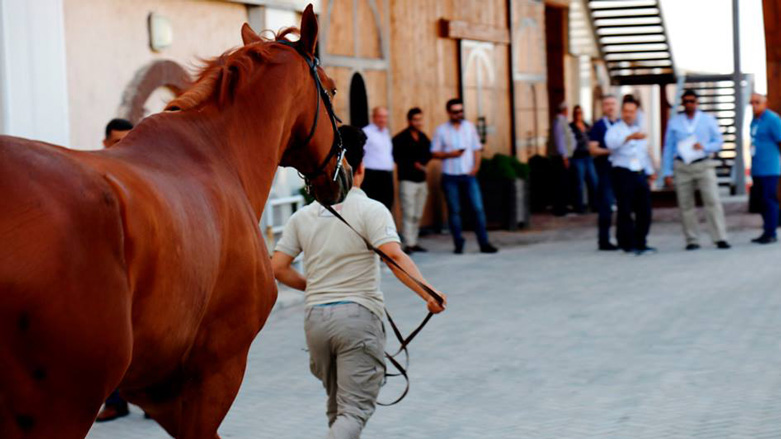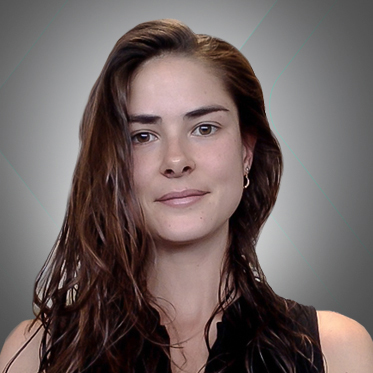Displaced teens find new life in Erbil's Equestrian Club after IS

ERBIL, Kurdistan Region (Kurdistan 24) – Everything runs smoothly at the Erbil Equestrian Club. The stately entrance hall, barns, arena, and racetrack located on Massif road are a startling foil to the hustle and bustle of downtown Erbil. Here, a well-to-do serenity pervades as the equestrian-set canters their horses in a raked indoor arena.
Behind the scenes, a dedicated team of employees ensures the club, which opened its doors in 2015, runs like a well-oiled machine. Some of them have spent their entire professional lives in stables across the Middle East honing blacksmithing skills or veterinary knowledge.
But for twelve grooms who hail from villages surrounding Mosul, the learning curve has been steep. The young Kurdish men, whose ages range from late teens to early-twenties and from the Kakai ethnoreligious minority, fled their homes as the Islamic State (IS) approached in 2014, leaving school and the melodramas of teendom behind.
Finding refuge in the Kurdistan Region, along with more than 2 million refugees and displaced Iraqis, the grooms have fast become experts in both horse care and training.
Four years ago, before the ranks of IS fighters began to swell across Iraq and the terrorist group gained momentum, Laith was an average teenager in Hamdaniya where the rhythm of his days orbited around school and family. As the jihadists approached, however, he fled.
“We left at 4:00 in the morning. It was the worst moment in my life,” he recalled.
Laith arrived in Khabat where he began looking for work.
When his brother told him about a job available at brand new horse club opening near Erbil, Laith jumped at the chance. Entering the stables in the winter of 2014, Laith had never touched a horse.
“I didn’t know anything about horses,” he admitted. “At first, I was afraid.”
Now, standing at the shoulder of a massive chestnut gelding, he notices a small saddle sore and expertly applies the salve. When the horse rears his head, Laith calms him down with a cluck and a calming stroke.
“You just have to learn. Once you learn it’s easy,” he said.
Laith and the other grooms are the backbone of the tony Erbil Equestrian Club, which is owned by the Darin Group and frequented by some of the country’s most well-heeled citizens. The grooms’ tasks range from ensuring that reins are oiled and saddles stored in their proper places, to training the barns' 92 horses, each worth between $10,000 and $70,000.
After feeding the horses and ensuring the barns are immaculate, the grooms begin training. They patiently walk excitable horses around the arena and use lunge-lines to teach foals how to follow the reining cues.
They are developing the knowledge and skills to help develop the emerging equestrian culture just beginning to grow here in Erbil. While village horses have long played a role in Kurdish culture, notably carrying the Peshmerga into battle for generations, the refined, highly regulated culture of competitive equestrianism is just beginning to take root in Kurdistan.
Like many Kurds living outside urban hubs, Hussein’s family kept a horse in their village near Mosul when he was a young child. But before July 2014 when IS’s rapid approach forced him to flee for the safety of Erbil, he had no exposure to the science of maintaining show horses.
“In the village, it's normal for people to have horses as pets— but here is much different. It's academic and international.”
Now, Hussein is helping to teach young riders who attend lessons at the club how to jump over fences and maintain proper posture at a canter.
“They are very professional,” said Khalid Al Rashid, the club manager, of the grooms. “When they got here they didn’t know anything about horses. Now, they are even helping me with veterinary work!”
The grooms have played an important role in preparations for the international jumping competition which took place Thursday and Friday. Ensuring the health and fitness of each horse met the standards of the International Federation for Equestrian Sports, and triple checking the fit of each saddle pad, the grooms rushed to accommodate the international riders and helped make the event a success.
It’s clear the grooms also enjoy themselves. They joke with one another as they pick hooves and deftly braid manes, laughing and trading good-natured digs. A barn puppy, Chichi, is scratched affectionately as he jumps at their heels.
“I’m relaxed here,” said Noor, who also fled IS in 2014. “It’s nice to be able to work with my friends and with these beautiful horses.”
Editing by G.H. Renaud
